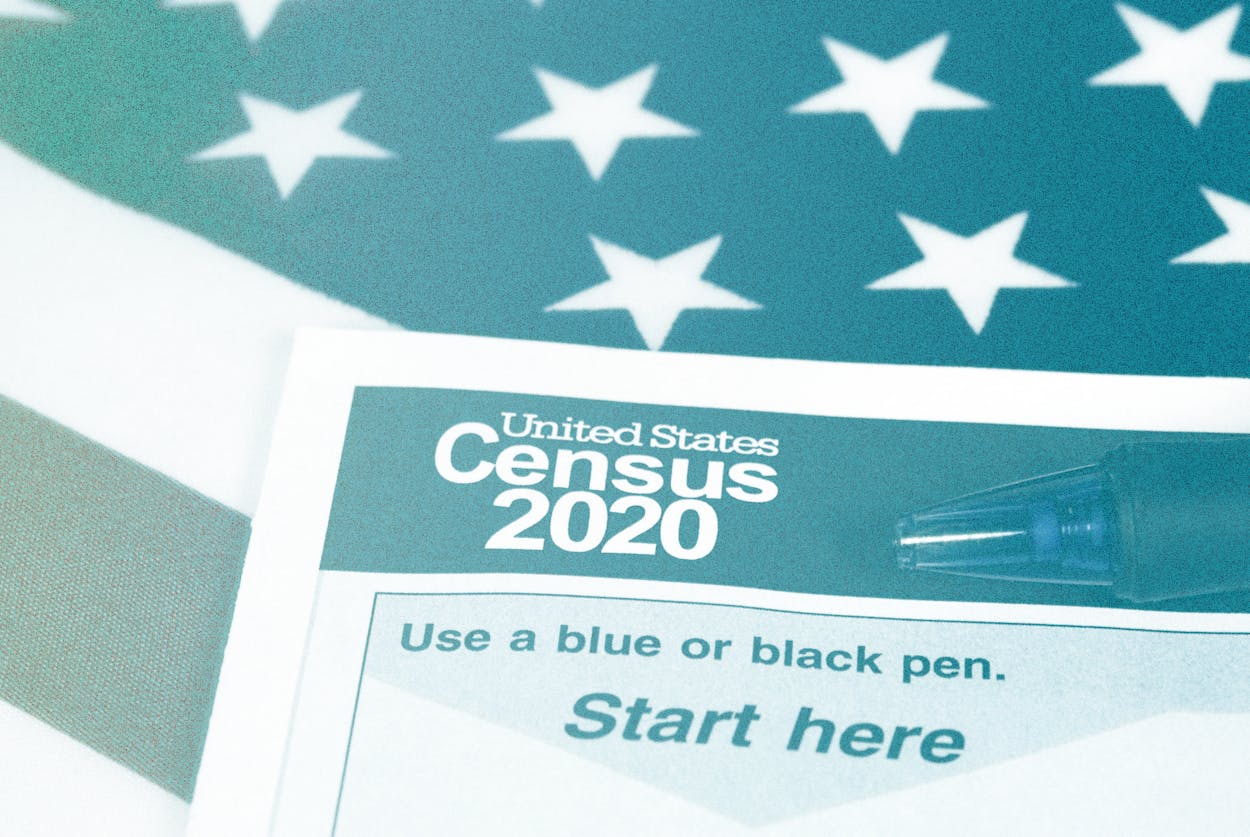In April, when I was reporting a story on what Texas stood to gain—or lose—in the 2020 census, I heard several demographers and community leaders repeat the same phrase: “Even if the citizenship question is taken off the census, the damage is done.”
At the time, a legal battle was raging over whether the Trump administration could add a question to the 2020 census that asked respondents whether or not they were U.S. citizens. Commerce Secretary Wilbur Ross had argued that the intent of the question was noble and egalitarian: it would give the Justice Department valuable information to better protect minority representation through enhanced enforcement of the Voting Rights Act. To a large group of states and local governments, among them Hidalgo, Cameron, and El Paso counties, which sued the administration in federal court to block the addition of the question, Ross’s explanation sounded disingenuous at best. Evidence showed that increasing the political power of whiter, more rural areas was a far more likely rationale. This morning, in a majority opinion that referred the case back to a lower court, Chief Justice John Roberts said he didn’t buy the administration’s argument either.
“Accepting contrived reasons would defeat the purpose of the enterprise,” Roberts wrote. “If judicial review is to be more than an empty ritual, it must demand something better than the explanation offered for the action taken in this case.”
The Supreme Court’s ruling means that the census will go forward without a citizenship question for now. (It remains possible that the Trump administration will try to forward a new rationale that Roberts will think is less contrived.) But the apparent death of the citizenship question does not mean the 2020 census will proceed without issue throughout Texas. The Census Bureau says it undercounted Texas in 2010 by nearly 240,000 residents, and census staffers have admitted that the Trump administration’s anti-immigrant rhetoric could very well hinder their efforts in 2020. That’s why I kept hearing fears that the “damage is done.” People on the front lines told me that if the Supreme Court ruled, as it did, to keep the citizenship question off the census, it likely wouldn’t unwind the climate of fear of which the citizenship question had been a part.
But the potential addition of the citizenship question didn’t just instill fear, it provoked a backlash of sorts. In 2010, community leaders relied heavily on the Census Bureau itself to reach what are known as “hard-to-count” communities, and in some areas, like the immigrant-heavy colonias near the U.S.–Mexico border, the bureau failed to get responses from large swaths of the population. This census cycle—with the citizenship question looming—local government, business, and nonprofit leaders got serious.
Rumors of a possible citizenship question began circulating not long after Trump’s inauguration, and planning for community-run census outreach efforts began not long after. On April 1, a year before the official launch of the 2020 census, local complete count committees began promoting census participation in the Rio Grande Valley, Austin, Houston, and El Paso. The plans are wide-ranging. Business leaders are preparing to encourage employees to fill out the census at work. Churches are planning census-response sessions. Hispanic activist organizations like La Union del Pueblo Entero (LUPE) and Jolt are planning to canvass door-to-door to spread the message that filling out the census is a form of political empowerment, a way to protest Trump’s rhetoric simply by agreeing to be counted. Now, with the citizenship question off the census form, a major obstacle to these efforts has been removed.
Will this really work? Governor Greg Abbott has so far declined to create a statewide complete count committee, and the Texas Legislature punted on measures that would have allocated funds to encourage census participation. Instead of having a well-funded, centrally organized census outreach program, Texas will rely on a patchwork of local coalitions. Will that be enough to overcome the lingering fears provoked by the citizenship question debate? What happens if President Trump fires off a few strategic tweets about ICE raids and deportations next spring as the count gets underway? We won’t know for more than a year. But as of this morning, Texas looks more likely than it did a month ago to secure additional billions for federal programs, to increase its representation in Congress by three seats, and to have more of its residents counted.
- More About:
- Politics & Policy
- Supreme Court







